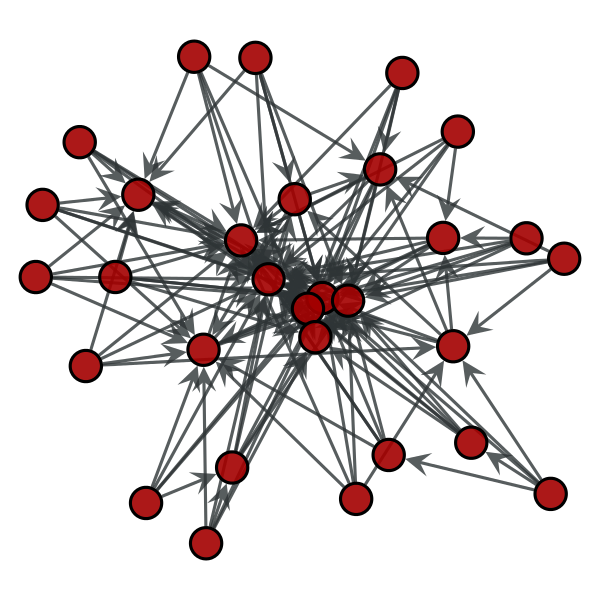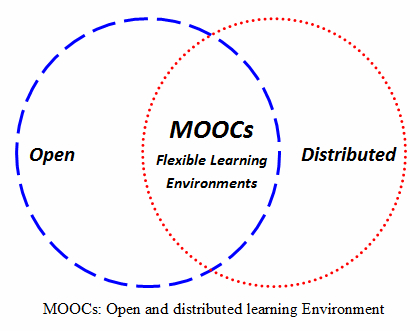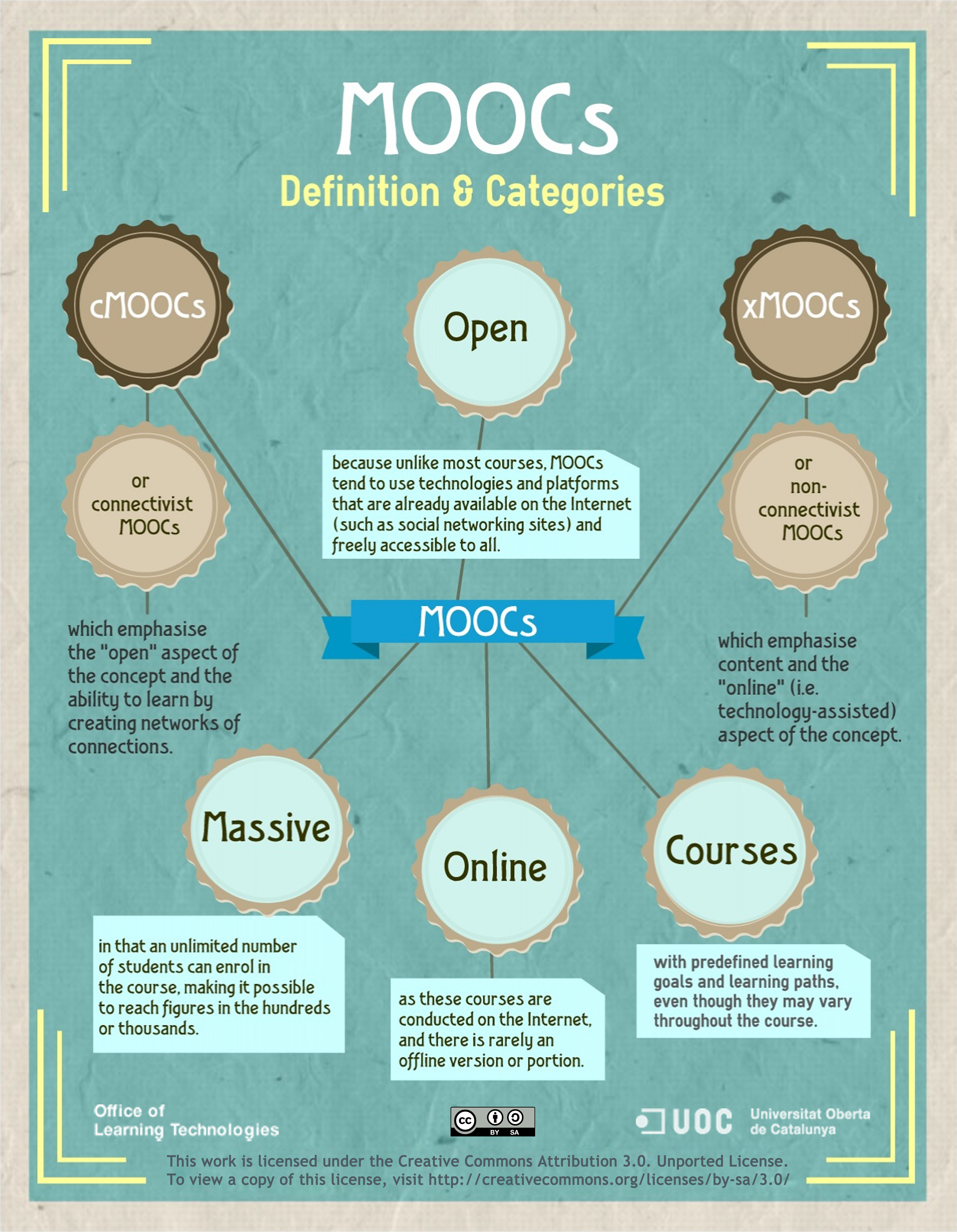 So after a couple of years since MOOCs become a recognized eLearning strategy (and for the sake of our readers, I’ll suppose you know what generally defines a MOOC), where do they stand? Still the possible future of education? Still a developing concept? Or perhaps a failed experiment?
So after a couple of years since MOOCs become a recognized eLearning strategy (and for the sake of our readers, I’ll suppose you know what generally defines a MOOC), where do they stand? Still the possible future of education? Still a developing concept? Or perhaps a failed experiment?
I’ll stand in the middle, aligning myself with ‘developing concept’, as there is promise, hype, and both encouraging and discouraging results.
DeVry University has dipped their toes in the MOOCy water in partnership with Udemy. They offer three signature courses…for free, but also for no-credit (though you do earn a certificate). These are well-produced videos with respected faculty, and probably best serve as a good ‘shopping experience’ to gauge the overall online experience and offerings DeVry provides.
How effective are those, and other, MOOCs? Well, depends on how you look at it. A recent story by NPR, “New Research Shows Free Online Courses Didn’t Grow As Expected” isn’t all bad news. Read the article for details, but one encouraging bit:
Justin Reich, a Harvard-based author of the paper, observes “Certainly, many folks at Harvard and MIT are excited by the idea that one of the ways MOOCs could make a positive impact on education is by being a resource for educators.”
Two Chronicle of Higher Education articles provide a bit more insight. Reporting on the annual Babson online-education survey, CHE notes these overall results related to online education:
- Online education has become mission-critical, even at small colleges.
- “Hybrid” courses are at least as good as face-to-face courses.
- Most professors still don’t think online courses are legit.
 While ‘MOOCs’ are not expressly referenced in that piece, it may be inferred that, as part of an online strategy, MOOCs are at least worth of consideration.
While ‘MOOCs’ are not expressly referenced in that piece, it may be inferred that, as part of an online strategy, MOOCs are at least worth of consideration.
At the same time, their perceived benefit seems to be slipping. The MOOC Hype Fades conclusion is interesting:
The conventional wisdom now is that free online courses offer a promising recruiting tool and an interesting (but not essential) research tool for colleges that can afford the upkeep, while also nudging more-conservative institutions to finally start integrating online coursework into the curriculum.
Despite that overall gloomy outlook, and bucking the previous articles summary, CHE also reports (more recently), “Cut Through the Hype, and MOOCs Still Have Had a Lasting Impact”.
So there continues to be a lot of speculation and MOOC-implementation is not standing still…
Arizona State University (ASU) has taken the MOOC concept and given it a unique spin with their “Global Freshman Academy”. In partnership with edX starting the Fall semester (2015), ASU will dive into integration of MOOCs into their curriculum, but with a twist: Freshman students may enroll in MOOCs for free (not uncommon) and, on completion, the student can decide if they want to keep that experience as a fun experiment, or pay $45 to earn a certificate of completion for any given completed MOOC (suitable for framing?), OR for $200 per credit hour, actually earn college credit for the course.
The best part? You don’t have to decide until the MOOCs are completed…so if you fail miserably, who’s to know and no financial investment lost. If you exceed, you can then take the reasonable financial hit for ASU credit.
While this is a great way to get a transcript started, I’m cautious on a few fronts:
- How well does this prepare the student for future courses, online or not, where cost and failure is not so easy to dismiss? (on the other hand, maybe it gives students a good, risk-free, insight to the required commitment).
- “Since the university stresses the MOOCs are just a new form of delivering courses it already offers, the transcripts won’t specify which type of course — in-person, online or massive online — students enrolled in to earn the credit.” – this seems a little…shady. Maybe it’s not but I generally advocate transparency…not translucence by omission.
- Is this really a good deal? Probably, if the student chooses to take the experience but not the credit. But if you want the credit, you may find a much better deal at other online universities or your local community college.
And of course, we have to consider the value of the education. In any case, not just in this situation, is the learning accomplished via a MOOC as thorough and valuable as that learned in a traditional classroom, or even a hybrid model?
But that’s a whole ‘nother discussion… (though Rachel Barnum has a fun writeup on her MOOC experience)
How I’d like to see MOOCs evolve over the next year: more LMS-like features, but not trying to replicate the LMS box. MOOCS as simple video lectures tied to a discussion forum is a pretty light pedagogical model (isn’t that what YouTube does?!). Where do we take true advantage of the medium to build in interaction, with professor, students, and content? How can we better integrate MOOCs into a hybrid or supportive model instead as the only methodology?
Overall, in my estimation, MOOCs are an awkward ‘Tween’ with a fairly bright future, if guided appropriately.
Additional Notes:
- Ryan Tracey has an interesting article, “The Future of MOOCs”, which has predictions from 2012…and as with all predictions, some seem more prescient than others…
- The NY Times has an interesting article timeline related to MOOCs and online learning.
- To further muddy the MOOCy waters, there are forks referred to as xMOOC and cMOOC. See this writeup for a great overview.

Hi! Your post showed up on my radar because of the reference to ASU. I work for a nonprofit called Saylor Academy; we make self-paced, any-time courses (we don’t consider our courses MOOCs, but that’s a whole discussion!).
Through two credit recommendation organizations, NCCRS and ACE CREDIT, we have had a full year of college credit available for students at many schools — for about $25 a course and a couple fees — all very transparent.
Take a look, when you have a change — http://www.saylor.org / learn.saylor.org — I’m always happy to chat about what we do!
While not on-topic to the MOOC subject, your post (and promotional) is related as a way for students to further their education in a low-cost, ‘exploratory’ way…which I find beneficial overall, or at least conceptually…so post approved!
Exploring your site a bit, seems like courses are free to register and take, “There is no cost to access and enroll in any Saylor course. Some Saylor courses contain an optional final exam that will provide students an opportunity to earn college credit.”
-http://www.saylor.org/frequently-asked-questions/
And while Saylor is not itself accredited, you have worked with a solid array of colleges to accept transferred credits (once the $25 exam fee for credit is paid):
http://www.saylor.org/majors/credit-aligned-courses/
Sounds like a pretty good option, especially for those (like those ASU is targeting) who need to ‘test the waters’ first. Best of luck with it!